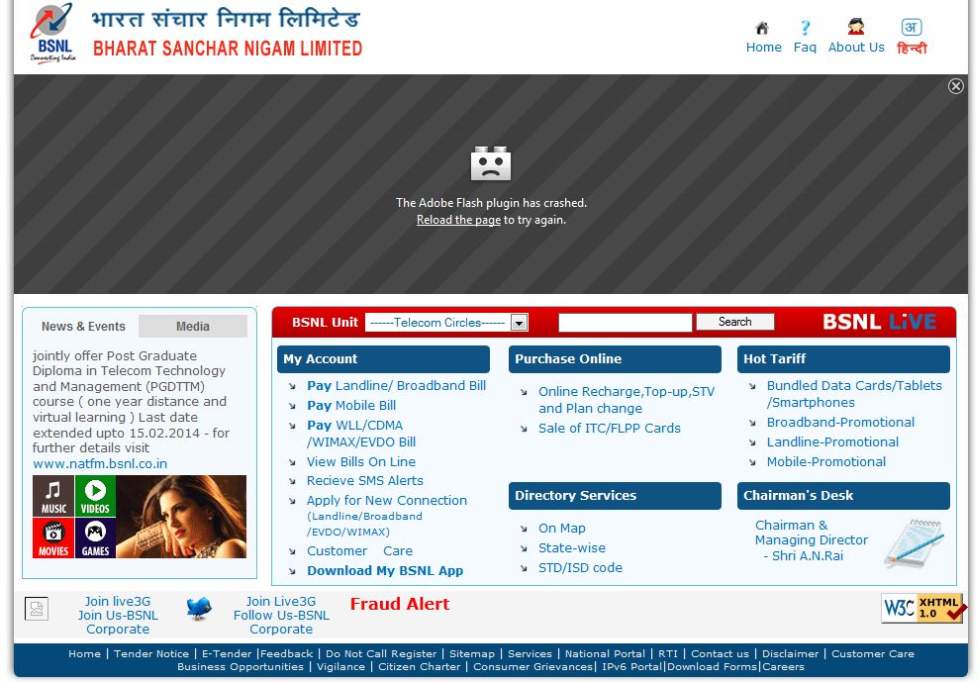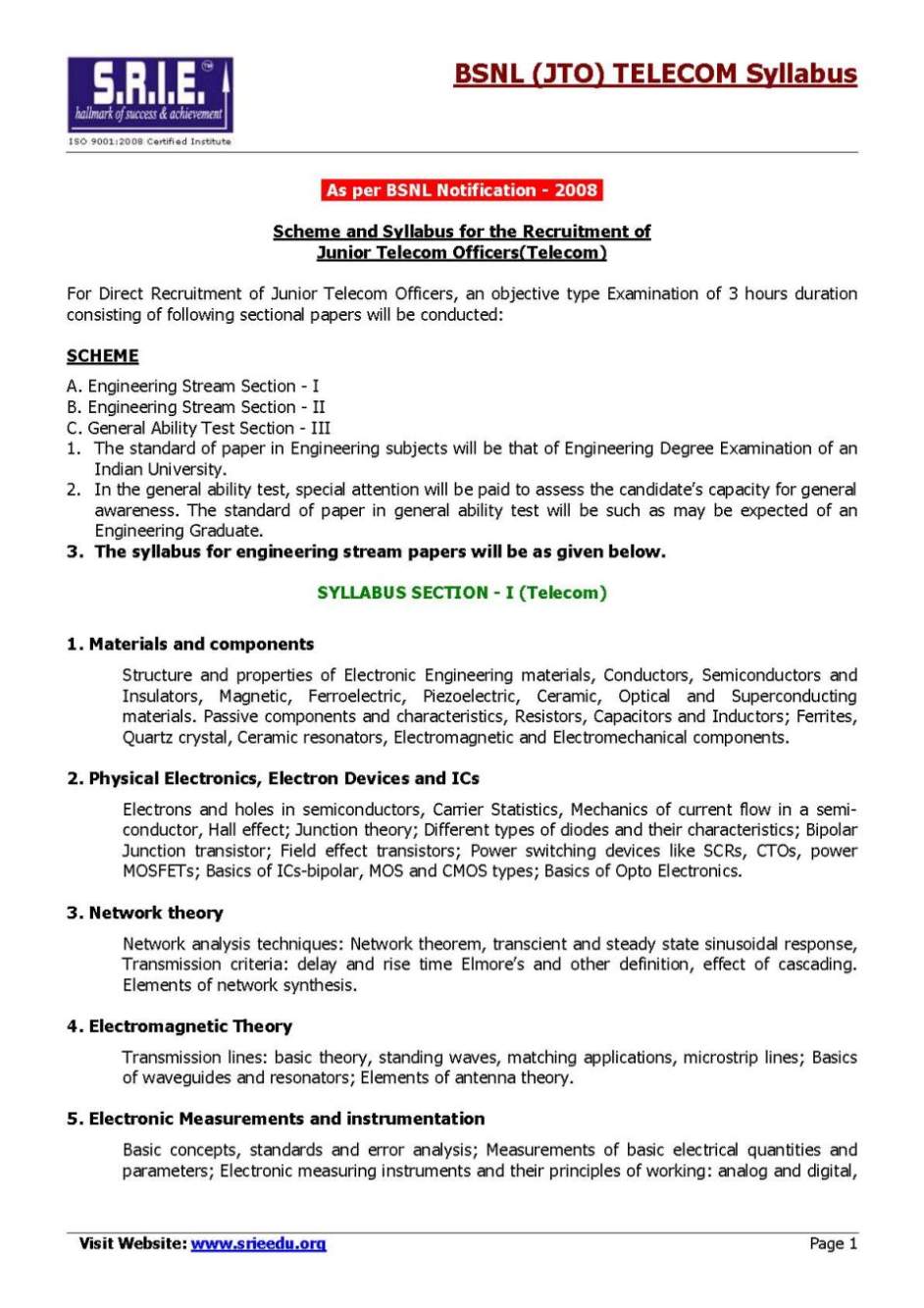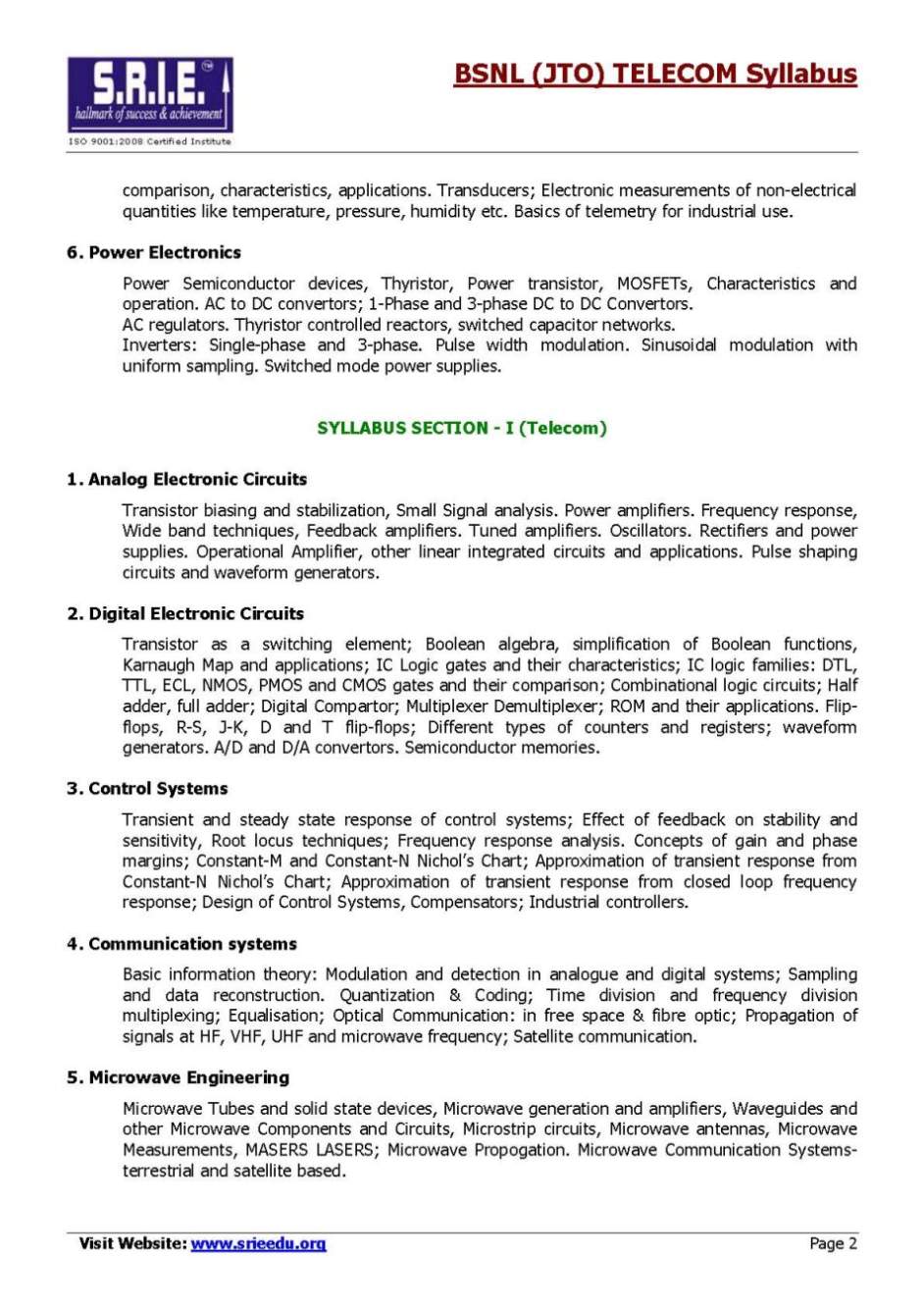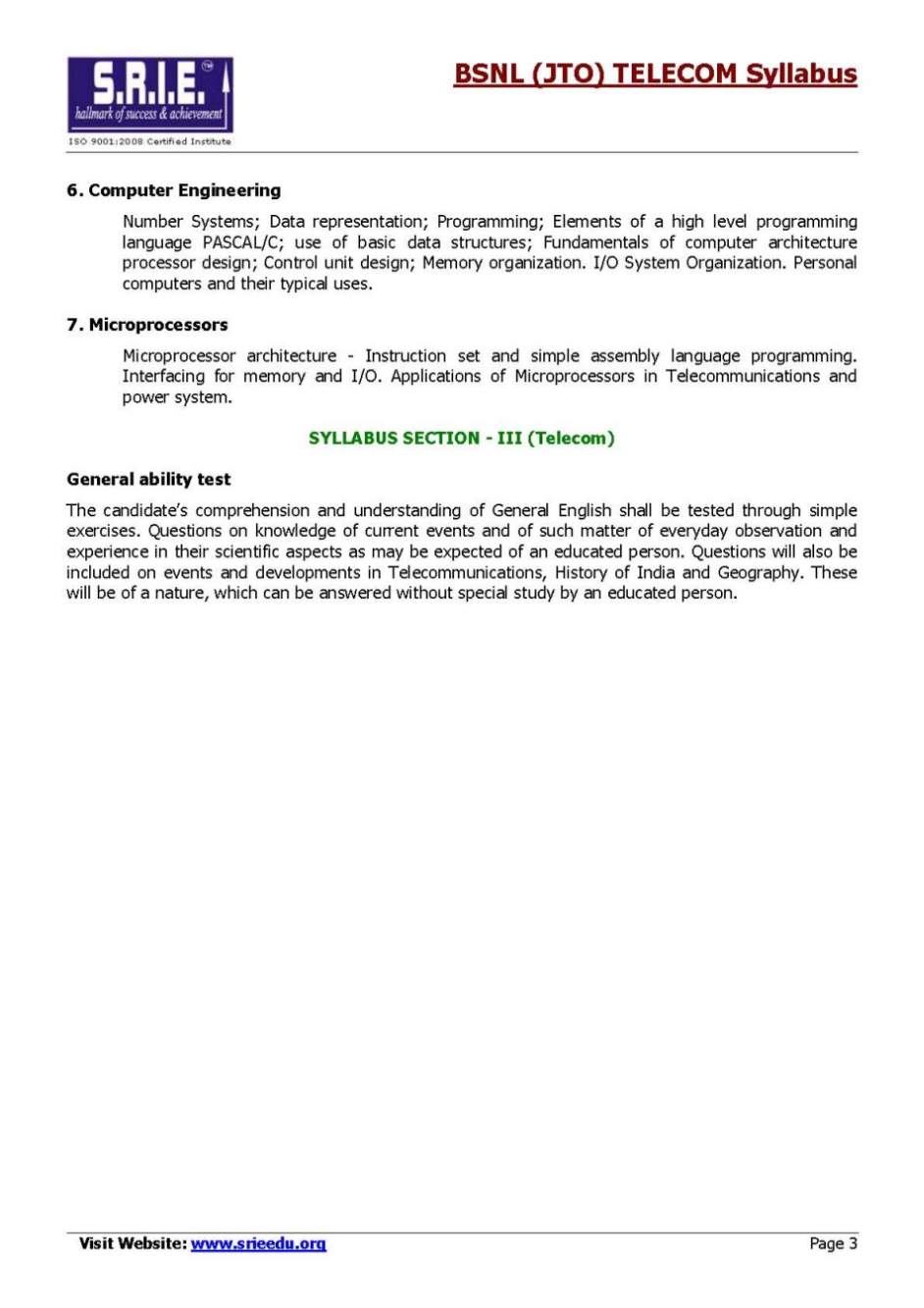|
#2
12th August 2014, 09:09 AM
| |||
| |||
| Re: Syllabus and the dates of exam of Bharat Sanchar Nigam Limited of JTO
As you want to get the syllabus and the dates of exam of Bharat Sanchar Nigam Limited of JTO so here it is for you: Eligibility Criteria: Candidates must have passed engineering in IT/CSE/ECS/Mechanical with 50% marks, from a college affiliated to reputed university. Important Dates: Ending date of applying to the registration form: March beginning Date of the examination: Last week of the April Declaration of the result: 10th May/June. Admit card will be issued from: April 2nd week. Recruitment process: The individuals will be recruited based on the entrance examination which contains objective type questions. Telecom field: There will be three phases of exam. Phases-I: Engineering stream-It will contain total 50 questions. Phases-II: Engineering stream-It will contain total 50 questions. Phases-III: General Ability Test-It will contain total 20 questions. Electrical field: There will be three phases of the exam. Phase-I: Electrical Engineering stream -It will contain total 50 questions. Phase-II: Electrical Engineering stream-It will contain total 50 questions. Phase-III: General Awareness-It will contain total 20 questions. Civil field: There will be three phases of the exam. Phase-I: Civil Engineering stream -It will contain total 50 questions. Phase-II: Civil Engineering stream -It will contain total 50 questions. Phase-III: General Ability Test-It will contain total20 questions. Online Application Process: (1). Firstly go to the official website of Bharat Sanchar Nigam Limited which looks like this image: Screen Shot  (2). Now on this page at the bottom you will find some tabs and from those tabs choose the tab of “Careers” (3). Now you will be directed to the next page which looks like this image:  Now on this page you will get the application form when it will be released Detailed Syllabus for BSNL JTO (Telecom) Materials and Components • Electronic Engineering materials • Capacitors • Ceramic materials • Ceramic resonators • Conductors • Electromechanical components • Ferroelectric material • Inductors • Insulators • Magnetic material • Optical materials • Passive components • Piezoelectric materials • Resistors • Semiconductors • Superconducting materials Physical Electronics, Electron Devices and Integrated Circuits • Bipolar Junction Transistor • Carrier Statistics • Electrons and Holes concept • Hall Effect • Junction theory • Power switching devices • Semiconductors • Types of diodes • Types of IC’s like bipolar, MOS and CMOS Electromagnetic Theory • Basics of antenna theory • Transmission lines • Waveguides and resonators Electronic Measurements and Instrumentation • Electronic measurements of non-electrical quantities • Electronic measuring instruments • Error analysis • Measurement standards • Measurements of basic electrical quantities • Transducers • Working principles of measuring instruments Network Theory • Elements of network synthesis • Network analysis techniques • Network theorem • Transient and steady state sinusoidal response • Transmission criteria Power Electronics • AC regulators • AC to DC convertors • Inverters • Power Semiconductor devices • Pulse width modulation • Single-phase and 3-phase Invertors • Sinusoidal modulation • Switched capacitor networks • Transistor Syllabus for Section II Digital Electronic Circuits • Boolean algebra • Boolean functions • Combinational logic circuits • De-multiplexer • Digital Comparator • Flip-flops • Full adder • Half adder • IC logic families • IC Logic gates • Karnaugh Map • Multiplexer • Semiconductor memories • Transistor • Types of counters and registers • Waveform generators Analog Electronic Circuits • Feedback amplifiers • Frequency response • Operational Amplifier • Oscillators • Power amplifiers • Pulse shaping circuits • Rectifiers • Small Signal analysis • Transistor biasing • Tuned amplifiers Control Systems • Compensators • Design of Control Systems • Frequency response analysis • Gain and phase margins • Industrial controllers • Root locus techniques • Transient and steady state response Communication Systems • Frequency division multiplexing • Optical Communication • Propagation of signals • Quantization & Coding • Sampling • Data reconstruction • Satellite communication • Time division Multiplexing Microwave Engineering • Microwave antennas • Microwave Communication • Microwave generation and amplifiers • Microwave Measurements • Microwave Propagation • Microwave Tubes • Solid state devices • Waveguides Computer Engineering • Control unit design • Data representation • Computer architecture processor design • Data structures • I/O System Organization • Memory organization • Number Systems • Personal computers • Programming Microprocessors • Applications of Microprocessors in Telecommunications • Assembly language programming • Instruction set • Interfacing for memory and I/O • Microprocessor architecture Syllabus for Section III • English Language • Current affairs • Current events and developments in Telecommunication Sector |


